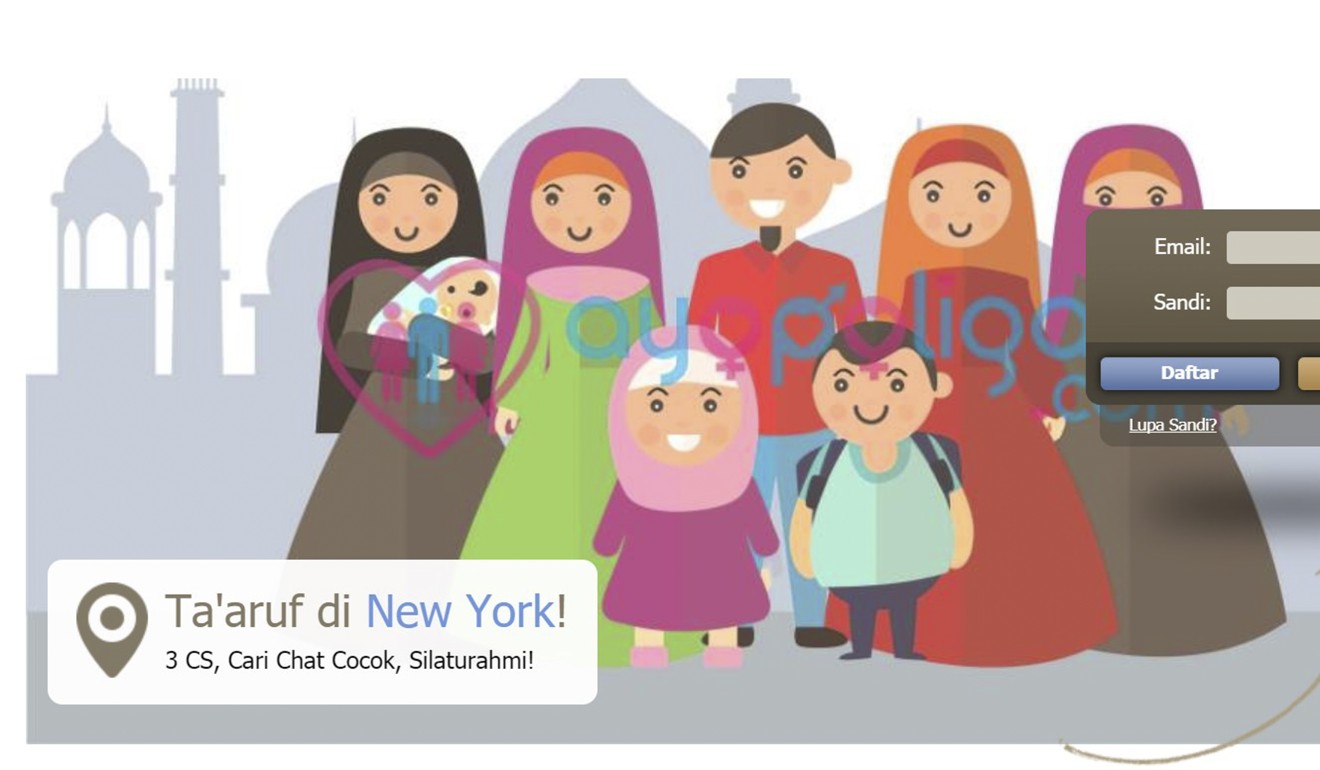
Do Indonesia’s anti-pornography laws protect morals or encourage discrimination and abuse?
The law was enacted to protect citizens from pornography and ‘pornographic acts’, but critics say it is open to wide interpretation and gives authorities the power to trample over human rights

“VIRGIN WANTED. No experiences necessary,” read the home screen of controversial Indonesian website Nikahsirri.com. “Turning adultery into worship” is its tagline.
Now blocked by the Indonesian government under the nation’s strict anti-pornography laws, passed into legislation in October 2008, the site promoted a service where men could be matched with virgins for “secret marriages” under Islam, but not recognised by the state. Claiming virgins could earn tens of thousands of dollars, it required them to be a minimum of just 14 years old.

Ironically, in illustrating the sinfulness of pre-marital sex, Nikahsirri includes a still from an amateur sex video – the very reason for its suspension under Indonesia’s pornography law. It also stands accused of facilitating prostitution, which is also banned under the legislation.
It is easy to be ensnared in Indonesia’s loosely phrased anti-pornography law. Rizieq Shihab, leader of the hardline organisation Islamic Defenders Front (FPI) was instrumental in the law’s introduction a decade ago, Rizieq was charged under the same law in May after screenshots of explicit WhatsApp messages he allegedly sent to a woman who is not his wife were circulated widely online.
In 2006, at the height of public debate about pornography, Rizieq’s FPI vigilantes vandalised the offices of Playboy Indonesia, even though it was not publishing nude photos. “The name itself means a man who likes to play around with women. Who can guarantee that they won’t publish nudity in the future?” he said at the time.
Rizieq is currently in Saudi Arabia.
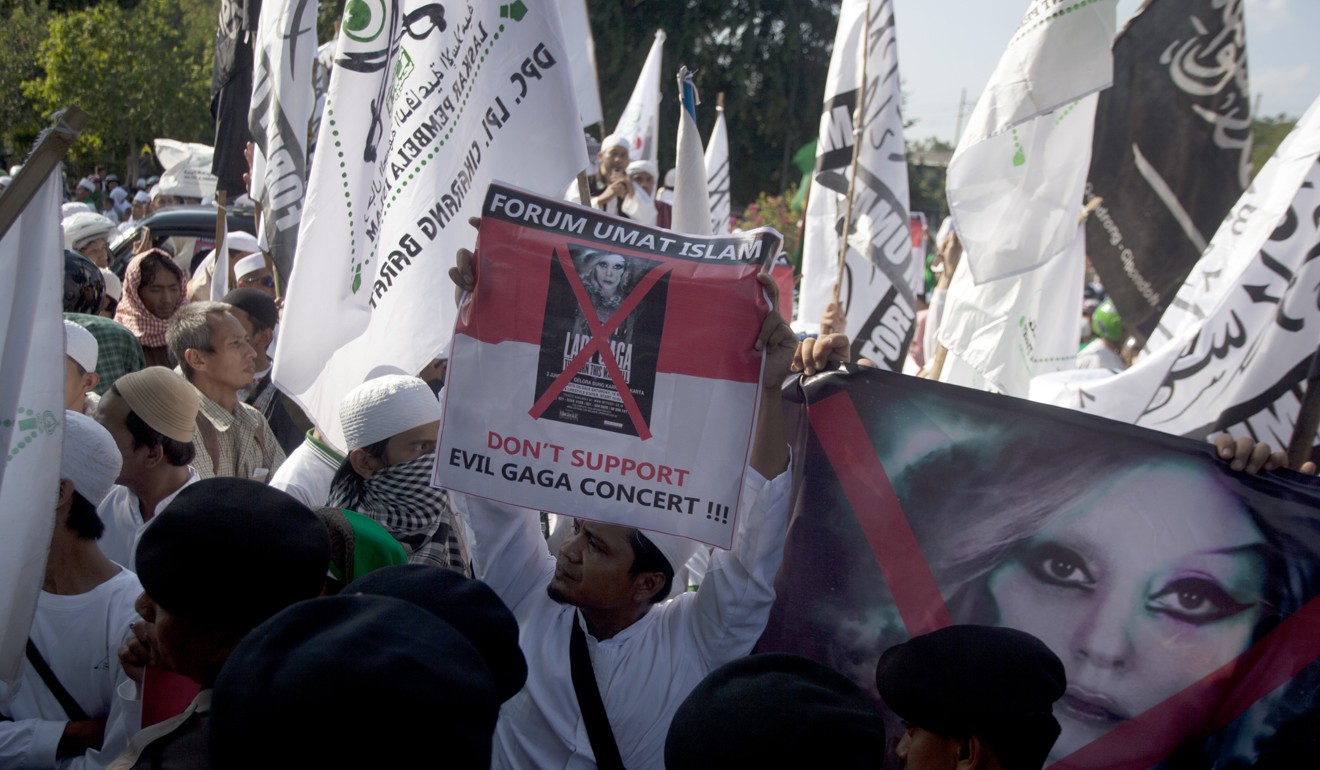
Critics of the pornography law say its contents are pasal karet – literally “rubber articles” – meaning they are open to wide interpretation and thus abuse. Pornography is broadly defined in the law as: “man-made sexual materials in the form of drawings, sketches, illustrations, photographs, text, voice, sound, moving pictures, animation, cartoons, poetry, conversations and gestures”.
Concern from conservative groups and the government over the appetite for pornography in Indonesia is not unfounded. A 2013 study by researchers from the universities of Copenhagen and Surabaya found that “pornography is as widely and readily consumed and accepted” in Indonesia as in sexually liberal Western countries with no anti-pornography laws.
The study showed that more than 92 per cent of Indonesian males had watched pornography in the previous year. Ironically, this was more than two years after the Healthy and Safe Internet programme was launched by the Ministry of Communications and Informatics, which imposed a strict filter on anything deemed pornographic.
More worryingly, media monitoring company Katapedia found last year that some 25,000 child sexual exploitation “activities” went on each day – uploads or downloads of pornographic material involving children.
Rizieq and Nikahsirri represent cases where the law has been used against religious conservatives. But groups that divert from mainstream Indonesian values – not least lesbian, gay, bisexual and transgender (LGBT) communities – are disproportionately affected. Last year, the government demanded popular messaging app LINE remove same-sex emojis. It later threatened to ban about 80 gay-friendly dating apps.
Ethnic minority groups had voiced opposition to the pornography law on the basis that it would potentially outlaw traditional forms of cultural expression, including art and dance. Women’s groups opposed aspects of the legislation that seek to police how women can act or dress.
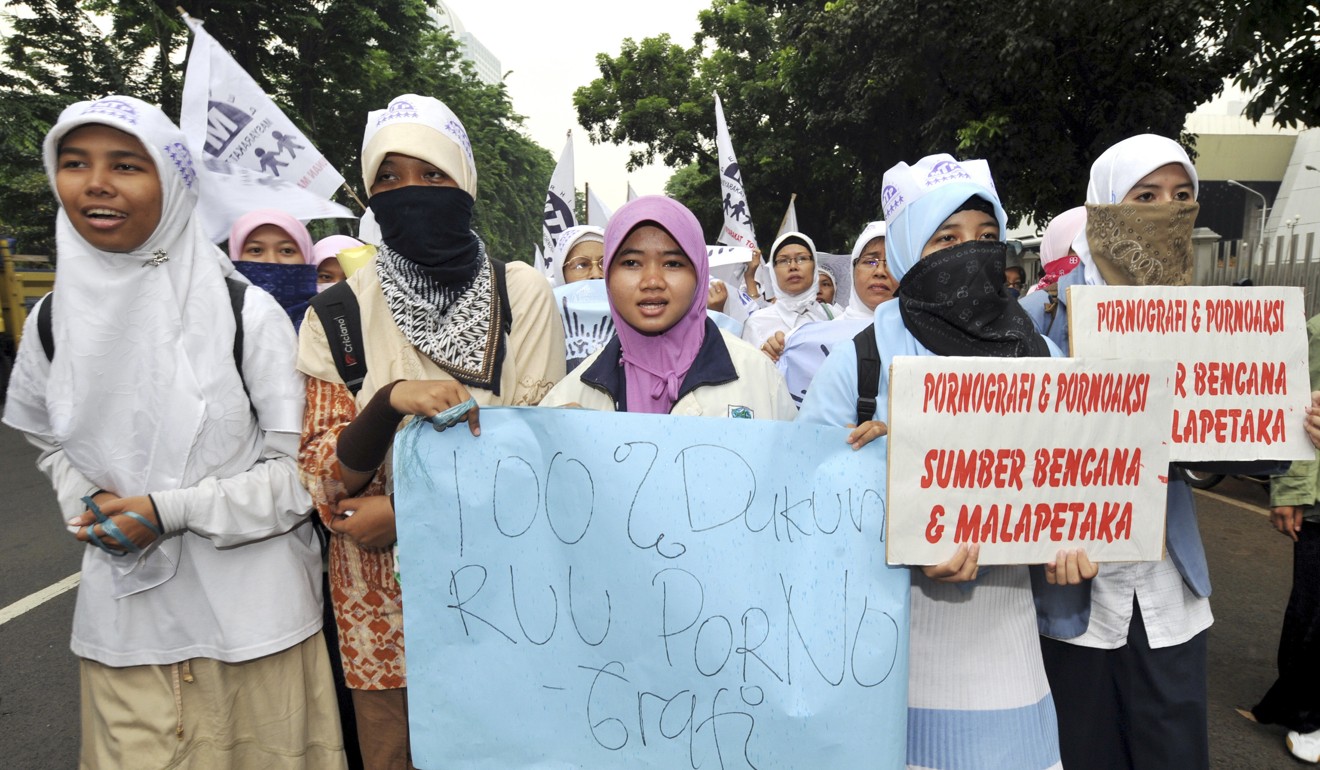
partner may leak their intimate video and they will be charged under the porn laws,” says Anindya
Restuviani, coordinator of the Feminist Fest Jakarta and a member of activist group Hollaback Jakarta.
The law is supposedly in place to “protect all citizens, particularly women, children and the young generation from the bad influence and [from becoming] victims of pornography”. But Restuviani says it unfairly “disadvantages women, since women are generally the objects of pornography”.

Eva Sundari, a member of the Indonesian Democratic Party of Struggle, told The New York Times: “This law will only empower vigilante groups like the FPI.”
Islamic parties remain marginal at the ballot box. In the 2014 presidential elections, PKS won only 6.79 per cent of the popular vote, compared with almost 20 per cent for incumbent Joko Widodo’s Indonesian Democratic Party of Struggle and 14.75 per cent for the Golkar party. They nevertheless remain influential.
The victory of Anies Baswedan in this year’s Jakarta governor’s election over his Christian rival Basuki “Ahok” Tjahaja Purnama is an example. Anies was endorsed by the professedly secular-nationalist Great Indonesia Movement Party (Gerindra), but courted the likes of the FPI with promises of cracking down on prostitution and other vices in Jakarta. It swept him to victory.
A raid on the Atlantis “gay spa” in Jakarta in May this year was the largest of its kind to date, in which more than 100 men were arrested. A number of management staff were charged with provision of pornography, while erotic dancers were charged with pornographic actions. Most patrons were eventually released, but only after being publicly paraded half-naked, and their images published by local media.
Ricky Gunawan, director of the Jakarta-based Community Legal Aid Institute (LBH Masyarakat) suggests the timing, soon after Rizieq’s conviction, indicates the police’s desire to demonstrate “fair” application of the pornography law – not only against powerful Islamic clerics who breach it, but homosexuals, too.
Article 4, paragraph 1 of the legislation refers to “perverse intercourse” – equating gay and lesbian sex to having sex with corpses or animals.
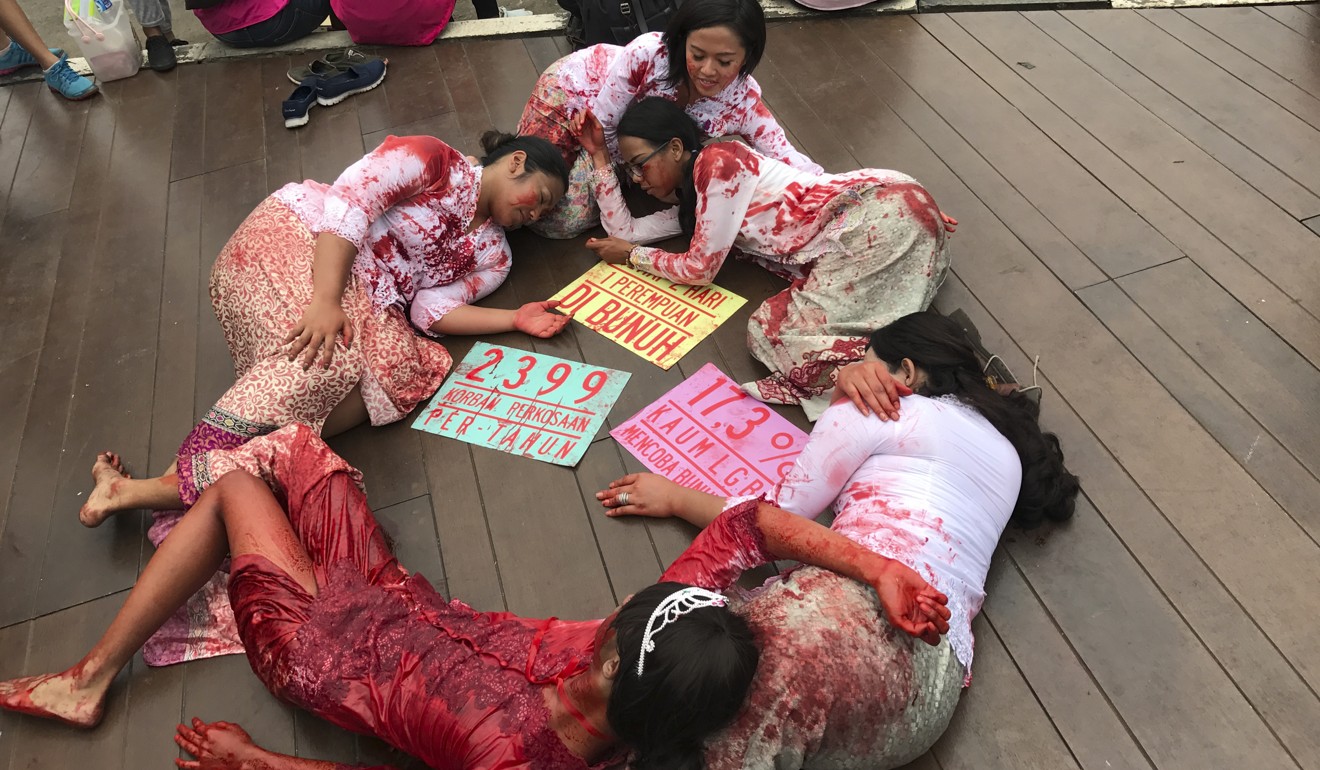
“Sexuality is a way to envision Indonesia,” he says, with conservative elements seeking to redefine what it means to be a woman and a citizen of the world’s largest Muslim-majority state – to the deliberate exclusion of LGBT Indonesians.
Gunawan says that targeting of the LGBT community fits within a broader political landscape of crackdowns against religious, ethnic and other minority groups. “Maybe this year LGBT, maybe next year Shia, the year after Ahmadi,” he says, referring to Islamic sects that have also been in the cross hairs of hardline Sunni organisations. “Because [the LGBT community] don’t have political power, it’s easy for them to exploit this issue.”
A nationwide family planning programme was launched in the 1970s under president Suharto’s secular military regime, which was effective in controlling population growth by encouraging the use of birth control. In the post-authoritarian era, however, the perception among some Muslims is that family means having numerous children. Additionally, child marriage and polygamy avoid zina, it is believed.
Indonesia seems unlikely to overturn its pornography laws any time soon, and the situation of LGBT citizens may yet grow more threatening. The country’s Constitutional Court upheld the pornography ban after a 2010 appeal, claiming the law was clearly defined and in line with the nation’s constitution.
Homosexuality will be further criminalised outside the pornography laws, thinks Lini, the advocacy coordinator at the Indonesian Federation of LGBTI Communities, known as Arus Pelangi.
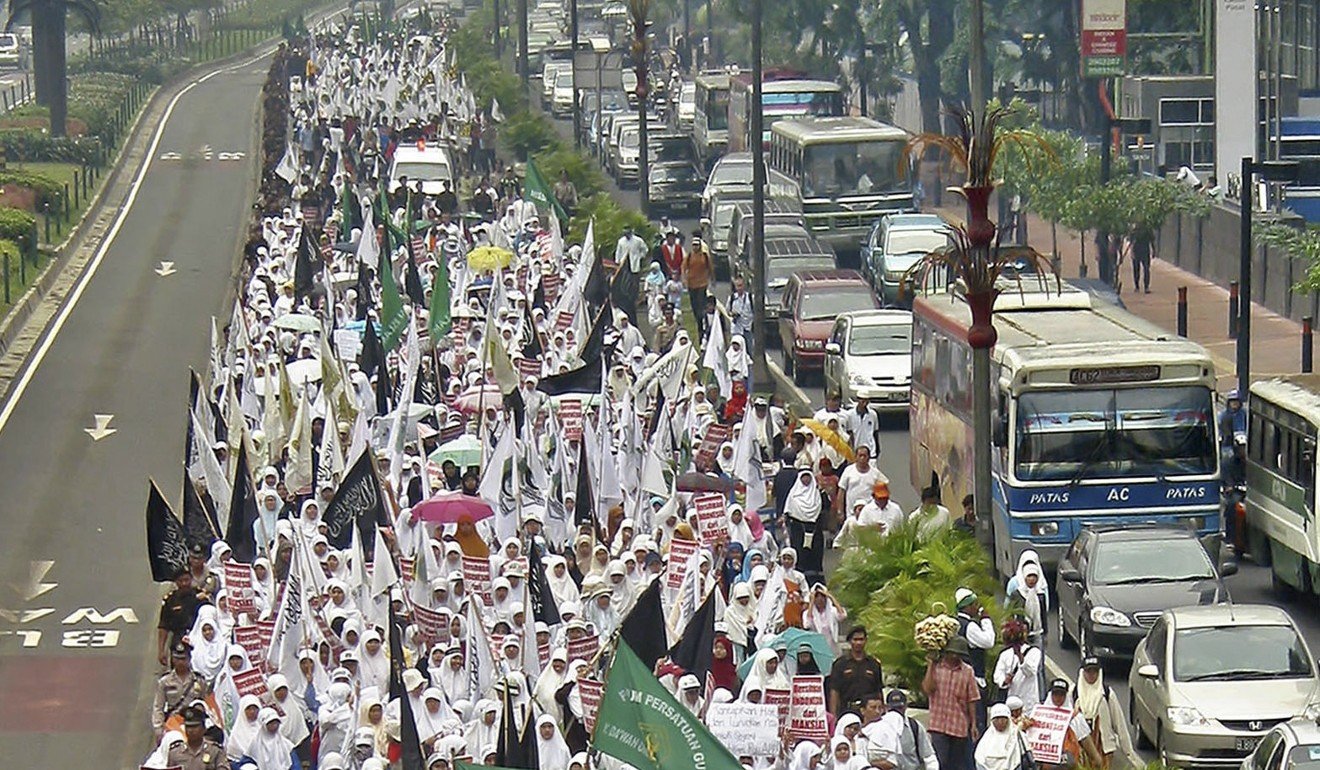
Notoriously conservative, Indonesia’s highest court is now presiding over proposed legislation that would officially make same-sex intercourse illegal. A fundamentalist Muslim group calling itself the Family Love Alliance put the petition to the court, arguing that the penal code should be reversed to make homosexuality a crime on the basis that current legislation is too Western.
Lini believes there is “only a slim chance” of the legislation being rejected in the long run. As for whether pornography laws will be toughened, however, Gunawan doesn’t see this happening yet.
“The conservative groups still believe that they have the power with this existing law.”